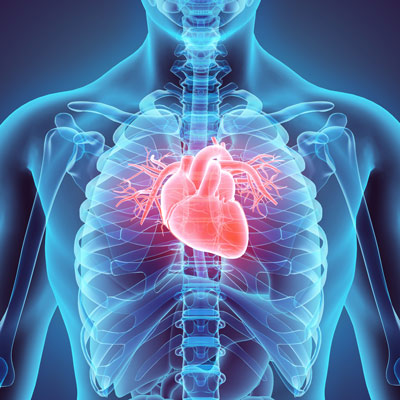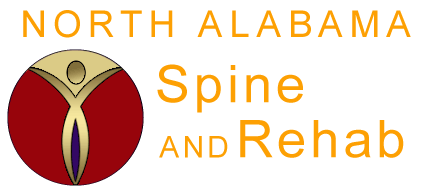How Chiropractic Care Can Support Cardiovascular Health

An estimated 82.6 million people in the United States experience one or more forms of cardiovascular disorders. This can include coronary heart disease, hypertension, congestive heart failure, arrhythmia, congenital disorders, rheumatic heart disease, and more. Not included in this number are the amount of individuals who have never been diagnosed with a cardiovascular disorder, but still experience recurrent symptoms such as a sensation of fluttering in the chest, irregular heart beat/rate, chest pain, dizziness, palpitations, shortness of breath, and light-headedness. All of these symptoms can be connected to cardiovascular health, which chiropractic care can help to support.
Do I have a cardiovascular disorder?
If you’ve never sought a medical evaluation to determine whether or not you have a cardiovascular disorder, then symptoms alone are not enough to form a diagnosis (nor should a diagnosis be provided by anyone other than a qualified medical professional).
Certain cardiovascular events may occur sporadically, making diagnosis difficult, or may not manifest substantially until the advancement of age. If you experience frequent cardiovascular-related symptoms (i.e., chest pain, heart palpitations, or fluttering in the chest), it is advised that you seek an official diagnosis from a medical professional. Additionally, ensure that chiropractic care is not contraindicated for your diagnosis, and inform any chiropractor or wellness professional you visit of your medical history prior to receiving treatment.
For those who have been medically examined and not received a diagnosis contraindicative to chiropractic care, chiropractic care may be able to offer relief from some symptoms, as well as support the overall health of your cardiovascular system. This is because chiropractic treatments can help regulate the nervous system, which in turn moderates signals delivered throughout the body to the heart.
The Nervous System & Cardiovascular System Work Together
The rhythm of the heart is controlled by a node in its upper right chamber which deploys electrical signals across the atria of the heart. The autonomic nervous system (part of the peripheral nervous system) is responsible for firing the sinus node to trigger the start of each cardiac cycle. The peripheral nervous system is responsible for regulating this process, as well as several other involuntary processes in the body including heart rate, blood pressure, respiration, and digestion.
When the peripheral nervous system (PNS) is inhibited, it can offset the natural balance of countless tasks in the body—including the heart’s rhythm and rate. The peripheral nervous system’s function can be inhibited by many factors: stress, lack of sleep, decreased circulation, misaligned spinal structure, strain on bones, joints, and muscles, and inflammation can all play a role in disrupting PNS function. This can result in irregularities in heart function that aren’t directly caused by a disorder, are difficult to diagnose and feel uncomfortable, but are not necessarily life-threatening.
The Role of the Spinal Structure & Posture in Cardiovascular Health
Posture and spinal alignment have long been connected to cardiovascular health and nervous system function, which we know to be interrelated. The spine and the position of the head, neck, shoulders, and ribcage all play a role in the function and efficiency of other bodily systems and organs, and, when compromised, create a strain on these organs and functions.
Chiropractic care for cardiovascular health is largely related to the therapeutic effect of chiropractic on the spinal structure. Frequently, when the nervous system is being inhibited in the body, this is due to inflammation, compression, bruising, or crushing of the nerves. This can be caused by injury, postural habits over time, genetic predisposition, congenital disease/imbalance, or lifestyle.
Chiropractic care first works to identify if there is an area of the body that is being strained due to a structural imbalance. This is the first order of business, as resolving structural misalignment is one of the fastest and most effective ways to restore nervous system function. Once an expert chiropractor identifies the area of the body that is suffering from misalignment, they will determine the best treatment plan for restoring optimal alignment. This may include regular adjustments, spinal traction, manual tissue manipulation, or something else entirely determined by your unique circumstances.
Over the course of each individual treatment plan, the body moves closer to optimal alignment. As the skeletal structure and posture rebalances itself, this removes pressure from the nerves of the body. Constricted nerves which have lost electrical and communication capacity over time are restored, helping to regulate heart rhythm and rate. Other functions that are controlled by the peripheral nervous system may also experience restored function and capacity, which tend to improve with each treatment.
Booking An Appointment
If you or someone you love in the North Alabama area is looking to boost or support their cardiovascular health, chiropractic care in Huntsville, AL and Decatur, AL is available. Expert chiropractor and owner Dr. Adam Shafran is excited to endorse his team of wellness staff to help provide a comprehensive and thorough assessment based on any symptoms you may be experiencing. If you’re ready to begin your journey toward optimal cardiovascular and nervous system health, book your appointment today.



